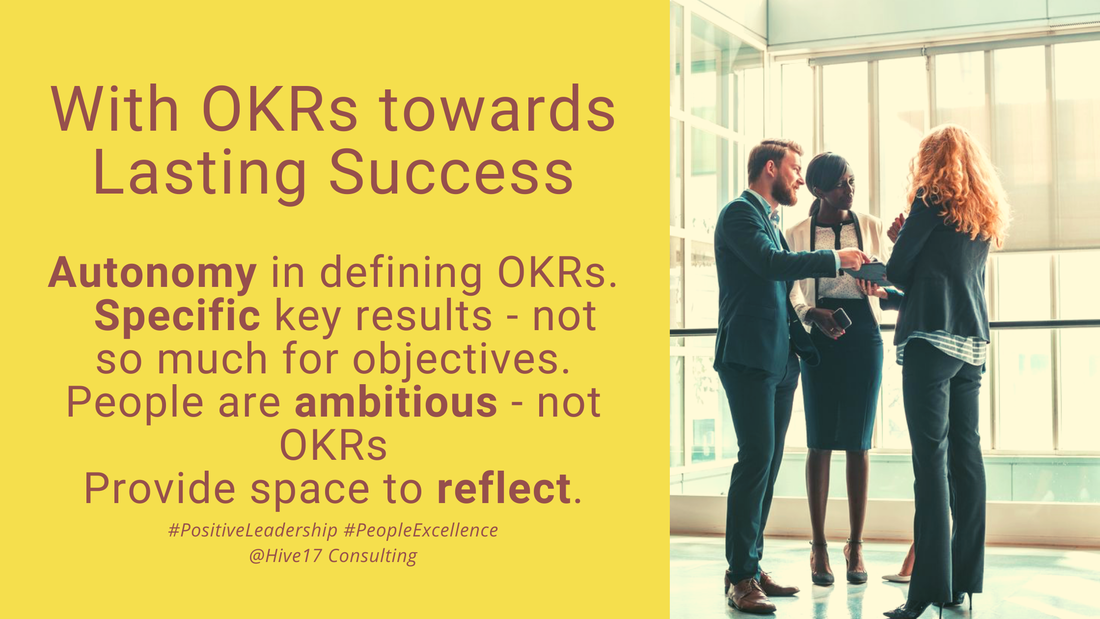|
While I am partnering with teams to allow them to become stronger, faster and successful in competitive, complex and ever-changing business environments, I often take out the tool of Objectives and Key Results (OKRs). When implemented correctly, they allow teams to get aligned into a common direction, to focus on what needs to be done now, and to create transparency on where we are and where we want to shift resources. When handled carelessly, then the implementation can also lead to frustration and disengagement.
Where as a leader do I need to be careful with when implementing OKRs? When I am implementing OKRs, I put a lot of focus on defining them with autonomy in the team. There are a number of external elements that give direction to the team, for example the company vision, market developments, customers' needs & insight and so on. Then, it is up to the team how they want to define and formulate the objectives they want to aim at in the long term. And, then identify the key results they want to achieve in the next three months. The team is in the driver seat and is in constant communication with their leaders to create alignment. In my observation, this process has proven to be highly motivating and meaningful to the teams. We heard many times that goals need to be specific, and yes, for the short-term key results it is important to bring clarity on the work we want to engage in now. At the same time, making the objectives too specific can act as a barrier to exploring alternative ways to reach the north star. Ambitious targets are a two-sided sword. And recently in my work I see that teams are simply exhausted and demotivated because they don't see how they can possibly achieve their OKRs. I often explain teams that they better travel light on their journey (with a smaller set of key results) and when these are completed, they can look a their backlog and "load" new key results. If their backpack is too heavy, it will slow them down. In this sense, it is good enough to aim at 70-80% achievement of the key results - something that I have read in the original description of OKRs (re:work). People are inherently ambitious with the right purpose guiding them. Targets don't need to be ambitious. Tracking and scoring OKRs is also a delicate path. Here the clear intention is creating transparency and input to decide where to allocate resources for the next month. This review step is intended to create breathing space and reflection on where we are on the journey. There needs to be a level of trust between the different parties to make the review process smooth. When no trust exists, this activity will end up in frustrating micromanagement. Thanks to the Corporate Rebels to inspire this reflection with their article The Dark Side Of OKRs (And Why We Should Care). What are the pitfalls you have been observing when introducing OKR?
0 Comments
Leave a Reply. |
Subscribe
Receive our monthly themed summaries of our thoughts: click! TimTim is a change practitioner in the area of innovation and excellence. He is working with teams to accelerate innovation, collaboration and agility. Categories
All
Archives
July 2024
|


 RSS Feed
RSS Feed